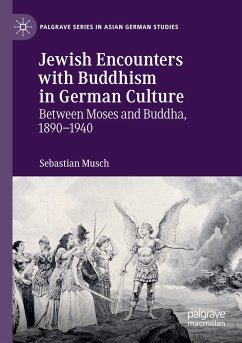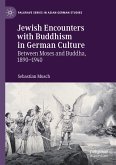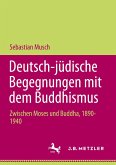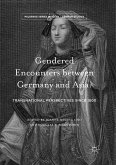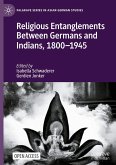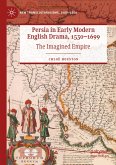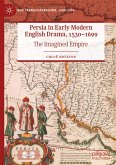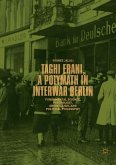In Germany at the turn of the century, Buddhism transformed from an obscure topic, of interest to only a few misfit scholars, into a cultural phenomenon. Many of the foremost authors of the period were profoundly influenced by this rapid rise of Buddhism-among them, some of the best-known names in the German-Jewish canon. Sebastian Musch excavates this neglected dimension of German-Jewish identity, drawing on philosophical treatises, novels, essays, diaries, and letters to trace the history of Jewish-Buddhist encounters up to the start of the Second World War. Franz Rosenzweig, Martin Buber, Leo Baeck, Theodor Lessing, Jakob Wassermann, Walter Hasenclever, and Lion Feuchtwanger are featured alongside other, lesser known figures like Paul Cohen-Portheim and Walter Tausk. As Musch shows, when these thinkers wrote about Buddhism, they were also negotiating their own Jewishness.
"This is for scholarship to come, which will undoubtedly find, in addition to students, academics, and a wider audience thirsty to understand more about the phenomenon of Jewish Buddhists, great inspiration and solid material in these two pioneering publications." (Mira Niculescu, Journal of Buddhist Ethics, Vol. 28, 2021)
"The book contributes to the emerging field of Asian-German Studies and appeals to scholars of Jewish Studies, German Studies, Orientalism, and Postcolonial Studies." (H-Net Reviews Humanities and Social Sciences, January 28, 2020)
"The book contributes to the emerging field of Asian-German Studies and appeals to scholars of Jewish Studies, German Studies, Orientalism, and Postcolonial Studies." (H-Net Reviews Humanities and Social Sciences, January 28, 2020)

